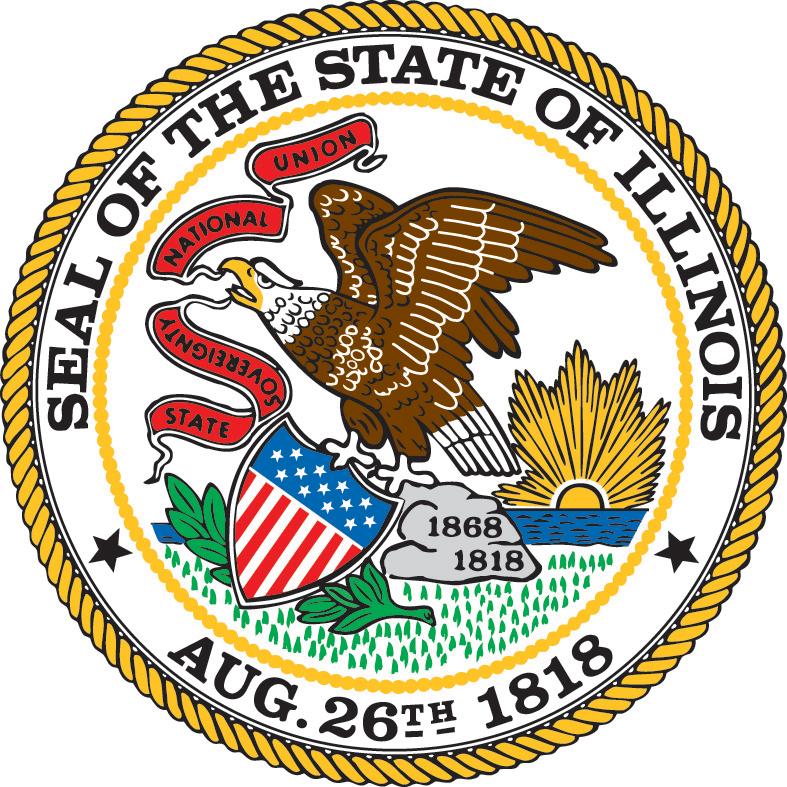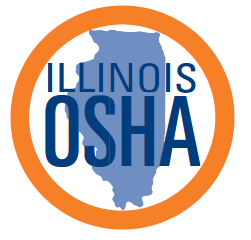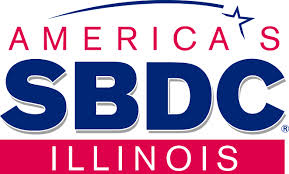|
State Agency Rules Open For Comment
The following rules have been proposed by State of Illinois agencies and are open for public comment. To read more about the rules or to submit comments regarding their impact on your business or industry, visit www.ildceo.net/regalert
and click on "submit comments"
.
The Department of Public Health proposed a new rule which will impact nursing homes, assisted living facilities, home care and hospice services and other entities that care for persons with dementia. To learn more about these potential changes,
click here.
NLRB Proposes Rule to Change its Joint Employer Standard
The National Labor Relations Board is
extending the time for submitting comments regarding its proposed rulemaking concerning the standard for determining joint-employer status under the National Labor Relations Act for an additional 30 days.
The submission window is currently open and interested parties may now file comments on or before Thursday, December 13, 2018. Comments replying to the comments submitted during the initial comment period must be received by the Board on or before December 20, 2018.
Public comments are invited on all aspects of the proposed rule and should be submitted either electronically to
www.regulations.gov, or by mail or hand-delivery to Roxanne Rothschild, Acting Executive Secretary, National Labor Relations Board, 1015 Half Street S.E., Washington, D.C. 20570-0001.
Click
here to read the Notice of Proposed Rulemaking and request for comments in the Federal Register.
Click
here to read the original announcement regarding the Notice of Proposed Rulemaking.
|
|
Angel Investment Tax Credit Program
|

Illinois Veterans' Affairs Launches the Veteran Entrepreneurship Logo Program
The Illinois Department of Veterans' Affairs has introduced its new Veteran Entrepreneurship Logo Program.
Veteran-owned businesses that are registered with the state, and in good standing, can display the logo in their place of business.
The new logo program is designed to raise public awareness about veteran-owned small businesses as a trusted and valuable part of the communities.
The program also aims to inform Illinois veteran business owners of the procurement opportunities with the state of Illinois.
Each year, Illinois sets aside more than $300 million in state contracts specifically to target veteran-owned businesses.
The logo program is an extension of the existing Veteran Business Program.
This program certifies qualified service-disabled and veteran-owned businesses in gaining access to those contracting opportunities and participation in the competitive procurement.
Regardless of the intent to participate in the procurement process, any veteran businesses certified through the Veteran Business Program will receive a veteran-owned small business certificate and access to the Illinois veteran business logo to use in their marketing efforts.
Certification is the only requirement to participate in the logo program.
The state of Illinois and Illinois
Department of Veterans' Affairs feels a strong veteran business community in the state strengthens the state's economy and its communities.
For information, visit
www2.illinois.gov/cms/business.
|
|
Here's How Tax Reform Changed Accounting Methods for Small Businesses
The Tax Cuts and Jobs Act - better known simply as tax reform - allows more small business taxpayers to use the cash method of accounting. The new law defines a small business taxpayer as a taxpayer who has average annual gross receipts of $25 million or less for the three prior tax years and is not a tax shelter.
Here's how tax reform changed the rules for small business taxpayers. The law:
- Expands the number of small business taxpayers eligible to use the cash method of accounting by increasing the average annual gross receipts threshold from $5 million to $25 million, indexed for inflation.
- Allows small business taxpayers with average annual gross receipts of $25 million or less for the three prior tax years to use the cash method of accounting.
- Exempts small business taxpayers from certain accounting rules for inventories, cost capitalization and long-term contracts.
- Allows more small business taxpayers to use the cash method of accounting for tax years beginning after December 31, 2017.
After Tax Reform Many Corporations Will Pay Blended Tax Rate
Tax reform legislation replaced the graduated corporate tax structure with a flat 21 percent corporate tax rate. This new maximum tax rate for corporations is effective for tax years beginning after December 31, 2017.
A corporation with a fiscal year that includes January 1, 2018, will pay federal income tax using what is called a blended tax rate. They will not use the flat 21 percent tax rate for their entire fiscal year. To calculate their blended tax rate, these corporations will:
- First calculate their tax for the entire taxable year using the tax rates that were in effect prior to the Tax Cuts and Jobs Act;
- Then calculate their tax using the new 21 percent rate;
- Proportion each tax amount based on the number of days in the taxable year when the different rates were in effect; and,
- Take the sum of these two amounts, which is the corporation's federal income tax for the fiscal year.
The blended rate applies to all fiscal year corporations with fiscal years that include January 1, 2018. Fiscal year corporations that have already filed their federal income tax returns that do not reflect the blended rate may want to consider filing an amended return.
New Tax Law Allows Small Businesses to Expense More, Expands Bonus Depreciation
The Internal Revenue Service reminded small business taxpayers that changes to the tax law mean they can immediately expense more of the cost of certain business property. Many are now able to write off most depreciable assets in the year they are placed into service.
The Tax Cuts and Jobs Act (TCJA), passed in December 2017, made tax law changes that will affect virtually every business and individual in 2018 and the years ahead. Among those for business owners are tax rate changes for pass-through entities, changes to the cash accounting method for some, limits on certain deductions and more.
Section 179 expensing changes
A taxpayer may elect to expense all or part of the cost of any Section 179 property and deduct it in the year the property is placed in service. The new law increased the maximum deduction from $500,000 to $1 million. It also increased the phase-out threshold from $2 million to $2.5 million. These changes apply to property placed in service in taxable years beginning after Dec. 31, 2017. For most businesses, this means the 2018 return they file next year.
New 100 percent, first-year 'bonus' depreciation
The 100 percent depreciation deduction generally applies to depreciable business assets with a recovery period of 20 years or less and certain other property. Machinery, equipment, computers, appliances and furniture generally qualify. The law also allows expensing for certain film, television, and live theatrical productions, and used qualified property with certain restrictions.
The deduction applies to business property acquired after Sept. 27, 2017, and placed in service after Sept. 27, 2017, and before Jan. 1, 2023. In general, the bonus depreciation percentage is reduced for property placed in service after 2022. See the proposed regulations for more details.
Taxpayers may elect out of the additional first-year depreciation for the taxable year the property is placed in service. If the election is made, it applies to all qualified property that is in the same class of property and placed in service by the taxpayer in the same taxable year. The instructions for Form 4562, Depreciation and Amortization, provide details.
IRS Reminds Employers, Business Owners of January 31 Filing Deadline for Wage Statements, Independent Contractor Forms
The Internal Revenue Service reminded employers and other businesses that Jan. 31 remains the filing deadline for wage statements and independent contractor forms.
The Protecting Americans from Tax Hikes (PATH) Act of 2015 started a requirement for employers to file their copies of Form W-2, Wage and Tax Statement, and Form W-3, Transmittal of Wage and Tax Statements, with the Social Security Administration by Jan. 31. Certain Forms 1099-MISC, Miscellaneous Income, filed with the IRS to report non-employee compensation to independent contractors are also due at this time. Such payments are reported in box 7 of this form.
The IRS can more efficiently verify income that individuals report on their tax returns because of the Jan. 31 deadline; this helps prevent fraud. File these forms correctly and timely to avoid penalties.
IRS e-file is the quickest, most accurate and convenient way to file these forms.
Pointers to help filers prepare
Employers should verify employees' information. This includes names, addresses, and Social Security or individual taxpayer identification numbers. They should also ensure their company's account information is current and active with the Social Security Administration before January. If paper Forms W-2 are needed, they should be ordered early.
Automatic extensions of time to file Forms W-2 are not available. The IRS will only grant extensions for very specific reasons. Details can be found on the instructions for
Form 8809, Application for Time to File Information Returns.
IRS Issues Proposed Regulations on New Business Interest Expense Deduction Limit
The Internal Revenue Service issued proposed regulations for a provision of the Tax Cuts and Jobs Act, which limits the business interest expense deduction for certain taxpayers. Certain small businesses whose gross receipts are $25 million or less and certain trades or businesses are not subject to the limits under this provision.
For tax years beginning after Dec. 31, 2017, the deduction for business interest expense is generally limited to the sum of a taxpayer's business interest income, 30 percent of adjusted taxable income and floor plan financing interest. Taxpayers will use new Form 8990, Limitation on Business Interest Expense Under Section 163(j), to calculate and report their deduction and the amount of disallowed business interest expense to carry forward to the next tax year.
This limit does not apply to taxpayers whose average annual gross receipts are $25 million or less for the three prior tax years. This amount will be adjusted annually for inflation starting in 2019.
Other exclusions from the limit are certain trades or businesses, including performing services as an employee, electing real property trades or businesses, electing farming businesses and certain regulated public utilities. Taxpayers must elect to exempt a real property trade or business or a farming business from this limit.
Taxpayers may rely on the rules in these proposed regulations until final regulations are published in the Federal Register. Written or electronic comments and requests for a public hearing on these proposed regulations must be received within 60 days of publication in the Federal Register.
|
Nominate a Business for a National Small Business Week Award
SBA is now accepting nominations for National Small Business Week Awards. National Small Business Week
is May 5-11, 2019. . We'll tell you how to nominate yourself or a local small business and discuss judging criteria and best practices from previous winners. Click here to nominate a business.
How to
Establish
Business Credit for the First
Time
Access to cash and credit is a business's lifeline. Business credit allows a company to borrow money that can be used to purchase products or services. It is based on the trust that payment will be made in the future. Learn more.
Why You Need a Call to Action on your Website
A call to action (CTA) on a website is an instruction to the visitor in order to encourage them to take some kind of action. A CTA might be simple instructional text, such as "call us now", "find out more", or "subscribe to our Newsletter". After devoting time, effort, and money into creating a website to promote your services and products, the last thing you want is your visitors to leave without taking any action. Learn more.
|
|
Illinois On-Site Safety and Health Consultation Program - Resource of the Month
|
 Resource of the Month
Resource of the Month
Illinois OSHA protects the health and safety of public employees through the inspection, investigation and evaluation of public facilities and working conditions to ensure compliance with occupational safety and health standards and conducts educational and advisory activities to assure safe and healthy working conditions.
To learn more about how OSHA works, to request a consultation and to see the frequently asked questions, click here.
|
Advancing the Development of Minority Entrepreneurship (ADME) Workshops
Are you a new business owner? Are you looking for financing opportunities to meet your present needs and prepare you for future growth? If so, the Illinois Department of Commerce & Economic Opportunity, along with the SBDC, invite you to join us at the ADME Business Workshop. During the workshop, subject-matter experts will address the needs of individuals who are just starting their own businesses and those who are looking to pursue entrepreneurship.
Information will also be provided on the Advantage Illinois Loan Participation Program and FAME (Fund for the Advancement of Minority Enterprises). The State participates 50% on loans with lenders, enrolled in the program, offering a 2% fixed rate and up to $400,000 on the State's portion.
DATE: Wednesday, December 5th
TIME: 9:30 - 12:00 noon
LOCATION: Lincoln Land Community College, 5250 Shepherd Road, Montgomery Hall - Room 1168, Springfield
-OR-
DATE: Thursday, December 6, 2018
TIME: 10:00am -1:00pm
LOCATION: Illinois Department of Employment Security (IDES),
16845 S. Halsted Street,
Harvey, IL 60426
Below are the topics that will be covered:
- Business Entity & Business Planning
- Business Enterprise Program Certification for the State of Illinois
- Importance of Credit
- Grant Accountability & Transparency Act (GATA)
- Advantage Illinois Loan Participation Program
- Access to Capital Panel Discussion
|
|
Spotlight on Success - Federal Moto LLC
Following their passion for motorcycles, two brothers Michael and Peter Müller opened Federal Moto, a custom vintage motorcycle shop located at the Industrial Council of Nearwest Chicago incubator.
This past summer a visitor from Australia fell in love with one of their motorcycles (https://www.federalmoto.com/dark-passenger ). Enthusiastic about the export sale, Peter sought advice from the Illinois SBDC International Trade Center at ICNC. Lauro Arias, director of the center, guided Federal Moto through the export process, including the identification of the Harmonized Code (or Schedule B), connections with freight forwarders, terms of sale (or INCOTERMS) and international payment options.
After learning the export process and negotiating these terms with the buyer, Peter is in the process of shipping the motorcycle.
"We are grateful to Lauro and the Illinois SBDC at ICNC for their support and guidance. Even though we are only exporting one unit, now we know the process and are ready to do it again" said Peter Müller.
Last year during the ICNC Open House, Federal Moto opened their doors and Arias visited them along with representatives from the US Commercial Service and the state of Illinois Office of Trade and Investment, who appreciated the quality of their business and export potential.
Contact your nearest ITC center for help to export your product or service.
|
 |
|
|
|
| 
Illinois Small Business Development Centers are located throughout the state and provide information, confidential business guidance, training and other resources and services for start-up and existing small businesses.
Whether your company employs two people or 102, you need a strong network behind you to succeed. And that's where the Illinois Small Business Development Center comes in. SBDC partners with well-respected business development organizations and educational institutions to assist you in maximizing your potential to grow and attract investors. SBDC connects you to the experts, tools and opportunities that translate into endless possibilities!
The Illinois SBDC program is located within the Office of Entrepreneurship, Innovation and Technology at the Illinois Department of Commerce & Economic Opportunity. For more information please click here.
Need Assistance?
|
| 
http://www.illinois.gov/dceo STAY CONNECTED:    
This newsletter is provided in partnership with the Illinois Small Business Development Center Network.  |
|
|
|
|